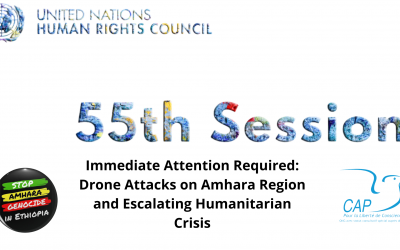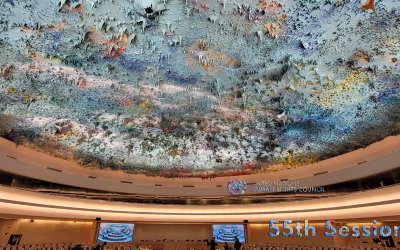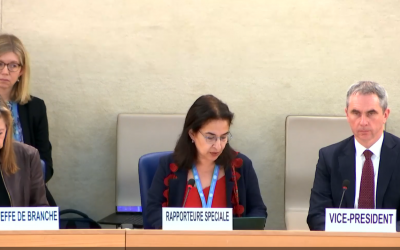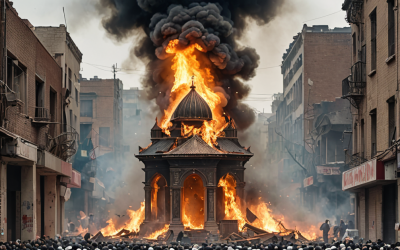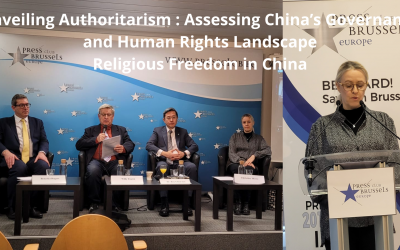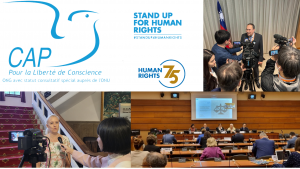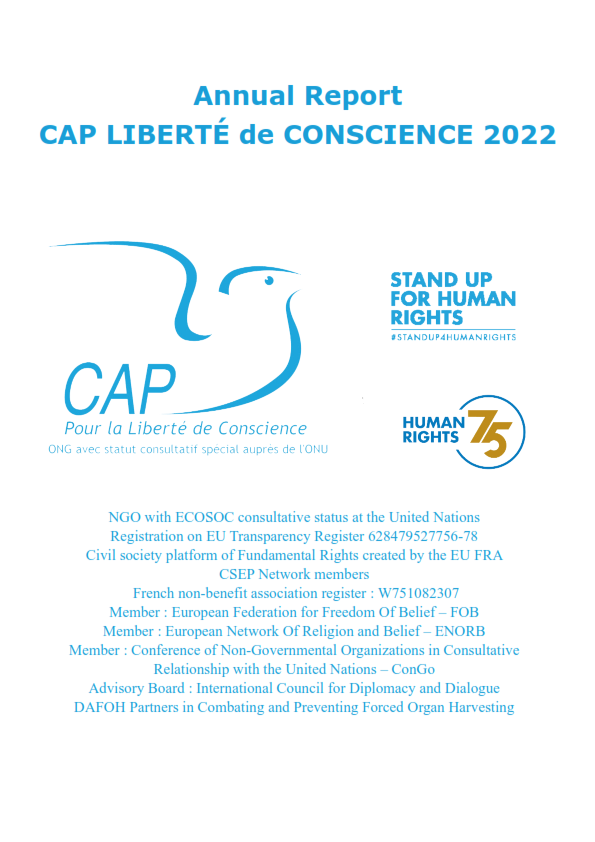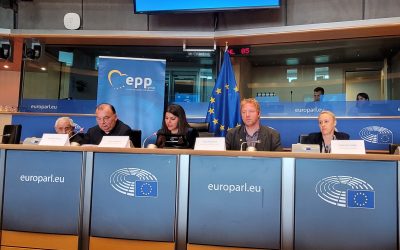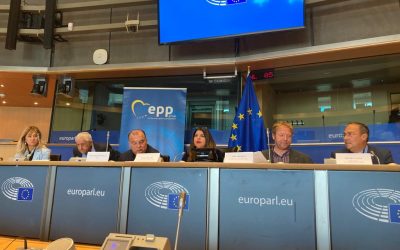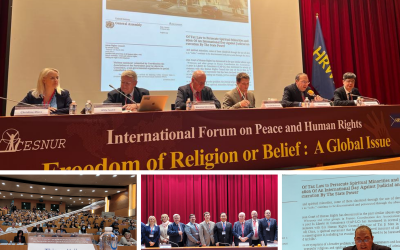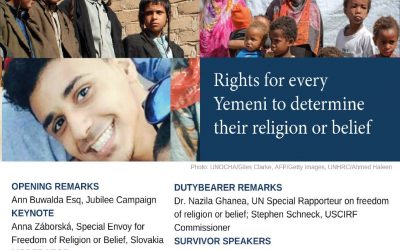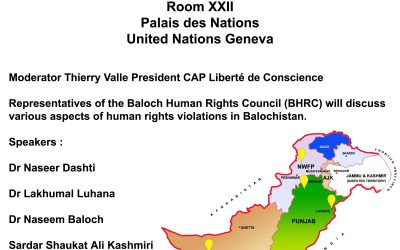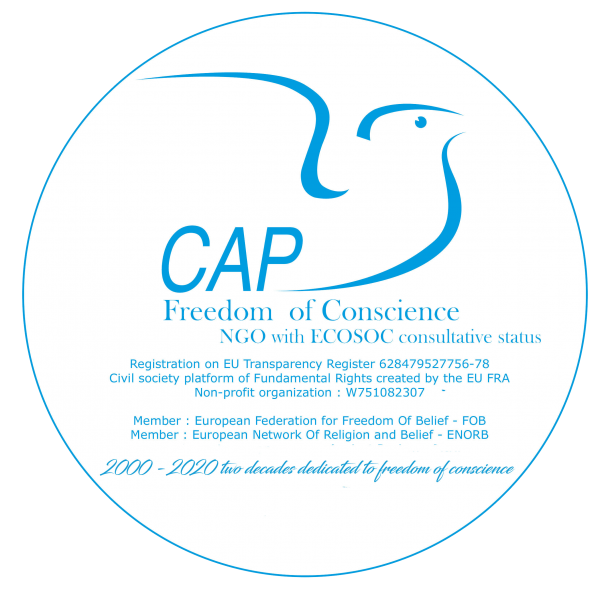
What is “Coordination des Associations et des Particuliers pour la Liberté de Conscience” (CAP Freedom of Conscience)?
CAP Freedom of Conscience is a secular European NGO with United Nations Consultative Status, created in 1995 and dedicated to protect the Right of Freedom of Religion and Belief.
CAP Freedom of Conscience combats all forms of discrimination based on religion or belief by alerting European and International bodies.
CAP Freedom of Conscience collects testimonies of discrimination and human rights violations affecting religious or belief communities in order to disseminate them to international bodies, and in order to raise awareness and inform them as well as to generate debate on the protection of Freedom of Religion and Belief.
CAP Freedom of Conscience also advocates for any religious or spiritual group facing discrimination to have their right to Freedom of Religion and Belief recognized.
CAP Freedom of Conscience is a member of the European Federation for Freedom of Belief (FOB), European Network Of Religion and Belief (ENORB) and participate to the Civil Society Platform of Fundamental Rights created by the EU Fundamental Rights Agency DAFOH Partners in Combating and Preventing Forced Organ Harvesting
Immediate Attention Required: Drone Attacks on Amhara Region and Escalating Humanitarian Crisis
Ethiopia’s Amhara region has been the target of over 100 drone attacks from August 2023 to January 2024. These attacks, acknowledged by Ethiopian Defence Chief FM Berhahu Jula, have resulted in significant civilian casualties and infrastructure damage. The use of drones, reportedly sponsored by the UAE and originating from various countries, including Turkey, Iran, and China, has exacerbated the humanitarian crisis in the region. The attacks have targeted civilian areas, including residences, schools, hospitals, marketplaces, and religious sites, resulting in the tragic loss of hundreds of innocent lives and widespread injuries. Despite Ethiopia’s international commitments to protect civilians during times of conflict, the government’s actions have blatantly violated these agreements and exacerbated the already dire situation in the Amhara region.
HRC 55 UPR outcomes of Germany
The report includes Germany’s responses to various human rights challenges, including efforts to combat racism, antisemitism, and discrimination, as well as measures to protect the rights of LGBTIQ+ persons, migrants, and other vulnerable groups.
Written Statement HRC 55 Violation of the Democratic Principles and Misuse of Tax Laws to Discriminate against Spiritual Groups
The written statement submitted to the Human Rights Council by Coordination des Associations et des Particuliers pour la Liberté de Conscience highlights the issue of discrimination against religious and spiritual groups through the misuse of tax laws in several countries. It points out that tax exemptions, which should be universally available to such groups, are instead used as tools of discrimination, particularly against movements deemed unpopular or labeled as “cults.” The statement references specific instances in France and Japan where religious groups faced such discrimination.
Oral Statement on France HRC 55 ID SR FORB 2024
“The children have told their father that they no longer wish to eat pork, presumably having adopted the Jewish religion, Jewish religion with their mother, and that they perform ablutions and recite prayers in Arabic, in Arabic during visits to their mother’s home.”
Exposing the shadows of religious hatred: A report by Nazila Ghanea
At a time when the fabric of global society is increasingly strained by divisions, the report on hatred based on religion or belief by Nazila Ghanea, the Special Rapporteur on freedom of religion or belief, emerges as a beacon of insight and guidance. This comprehensive document, to be presented at the 55th session of the Human Rights Council, not only examines the diverse manifestations of religious hatred, but also proposes a way forward for nations and societies grappling with this pervasive problem.
Unveiling Authoritarism : Assessing China’s Governance and Human Rights Landscape Religious Freedom in China : Advocacy at the United Nations
At every session of the Human Rights Council since 2016, CAP LC has intervened through written and oral statements on the issue of religious freedom in China. We have denounced the persecution, arbitrary detention, and torture of members of religious minorities, the forced organ harvesting of Falun Gong members, and the treatment of Uyghurs in forced labor camps in Xijiang.
CAP Freedom of Conscience involvement in Europe
Conference EU Parliament : oppression of minorities in Iran and women rights
They have also encountered restrictions on their language and cultural rights. For instance, the Azeri language, which is widely spoken in Iran, has faced limitations in official settings, education, and media. Iranian law imposes certain restrictions on women, such as compulsory hijab and gender-based segregation in public spaces. It is important to emphasize that these issues are not unique to women of ethnic minority backgrounds in Iran. Women across the country, regardless of their ethnicity, face legal and social challenges that limit their rights and freedoms. I’d like to illustrate the situation of ethnic minority women in Iran with an emblematic case of persecution.
Conference EU Parliament : oppression of minorities in Iran and Religious Freedom
It is high time that Iran listened to the voices from around the world imploring it to comply with the universal principles of respect for human rights for all Iranians, and that the persecution, discrimination, and barbaric behavior of another age cease, so that this great country with a rich and glorious history, can once again become the magnificent Iran.
Oppression of Minorities in Iran : The Azeri Community as an Example
Join us tomorrow in the European Parliament to speak about the situation of Minorities and mainly the Azeri community. The debate aims at supporting 30 million Southern Azerbaijanis who suffer under the Iranian rule. The rights of this ethnic group must be guaranteed by anyone who claims to be an opposition leader, whether it is cultural autonomy or independence.
Taiwan : International Forum on Peace and Human Rights Freedom of Religion or Belief : The Case of Tai Ji Men at the United Nations
“religion and spirituality live in the hearts of the believers, but they create communities, and communities cannot exist without places where they can gather. For many religious and spiritual groups, these gathering places do not serve a functional purpose only. Land where devotees gather becomes sacred land. Religion and spirituality live in time and space. They separate portions of time and space from the daily temporal and spatial flow, appropriate them for themselves, and invest them with spiritual meanings. Taking their spaces away from spiritual movements means cutting their deepest roots.”
HRC52 Parallel Event | Recognising the Diversity of Yemen – Safeguarding the rights of every Yemeni to determine their religion or belief
As Yemen is defining its future, it is important that human rights, especially, the right to freedom of thought, conscience, religion and belief is front and centre and presented by those committed to those aims, not least individuals from discriminated religious beliefs.
52nd regular session Human Rights Council : side event Human Rights in Pakistan
CAP Liberté de Conscience is organizing an important side event at the United Nations 52nd regular session of the Human Rights Council on Balochistan.

